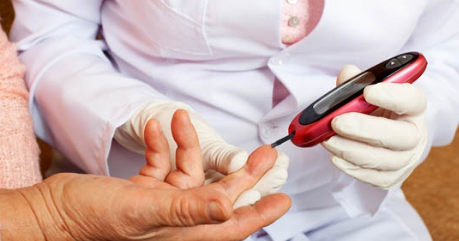Caring for elderly diabetic patients can be challenging, but there are several tips that can help:
- Help them manage their diet: Diabetes patients need to watch what they eat, especially when it comes to carbohydrates and sugars. Make sure they eat a balanced diet that is low in sugar and carbohydrates. Help them plan meals that are healthy and satisfying.
- Monitor their blood sugar levels: Elderly diabetic patients may need help monitoring their blood sugar levels. Help them keep a record of their blood sugar readings, and remind them to check their levels regularly.
- Encourage physical activity: Regular physical activity can help manage diabetes, so encourage your loved one to exercise regularly. This could be as simple as taking a walk around the block or doing some light stretching exercises.
- Help them manage medications: It’s important that elderly diabetic patients take their medication as prescribed. Help them keep track of their medications, and remind them when it’s time to take their pills.
- Be aware of potential complications: Diabetes can lead to a number of complications, including vision problems, foot problems, and nerve damage. Be aware of these potential complications, and watch for any signs that they may be developing.
- Provide emotional support: Living with diabetes can be stressful and overwhelming, so provide emotional support to your loved one. Listen to their concerns, offer encouragement, and be there for them when they need you.
- Consult with healthcare professionals: Work with your loved one’s healthcare team to develop a care plan that meets their specific needs. This may include working with a nutritionist, physical therapist, or other healthcare professional.
- Stick to a healthy diet: A healthy diet is important for everyone, but especially for those with diabetes. Encourage the elderly diabetic patient to eat a balanced diet with plenty of fruits, vegetables, whole grains, lean protein, and healthy fats.
- Stay physically active: Regular exercise can help control blood sugar levels and prevent complications associated with diabetes. Encourage the elderly diabetic patient to engage in physical activities that are appropriate for their age and physical condition, such as walking, swimming, or yoga.
- Keep blood sugar levels in check: Regular monitoring of blood sugar levels is important for diabetics. Encourage the elderly patient to monitor their blood sugar levels regularly and take their medication as prescribed by their healthcare provider.
- Attend regular check-ups: Encourage the elderly diabetic patient to attend regular check-ups with their healthcare provider to monitor their diabetes and any potential complications.
- Consider using technology: There are many technological tools available to help diabetic patients manage their condition, such as glucose meters, insulin pumps, and smartphone apps. Encourage the elderly patient to explore these options with their healthcare provider to see if they might be helpful.
- Stay hydrated: Encourage the elderly diabetic patient to drink plenty of water and avoid sugary drinks that can cause spikes in blood sugar levels.
- Consider meal planning services: If meal planning and preparation become difficult for the elderly patient, consider utilizing a meal planning service that caters to diabetic needs.
